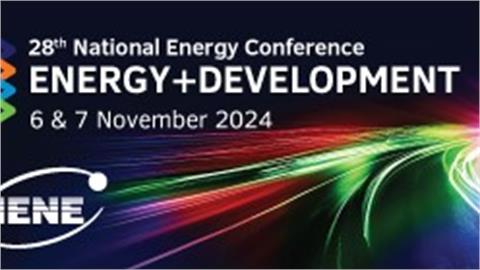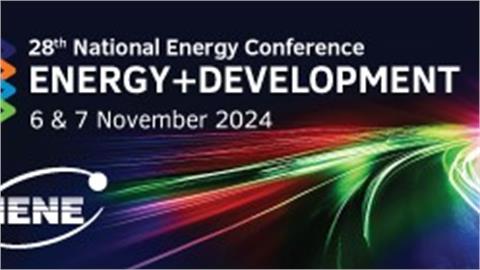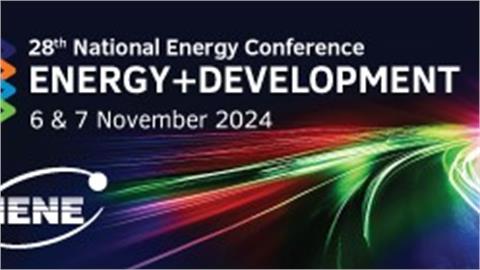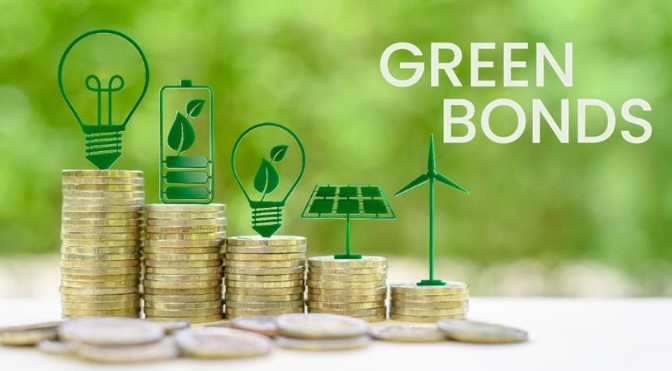On Tuesday, April 12, the Institute of Energy of Southeast Europe (IENE) organized a webinar on "Solid Waste and Energy", which focused on the solutions and opportunities to transform the management of municipal waste in Greece from a problem into an opportunity for wider development.
On Tuesday, April 12, the Institute of Energy of Southeast Europe (IENE) organized a webinar on "Solid Waste and Energy", which focused on the solutions and opportunities to transform the management of municipal waste in Greece from a problem into an opportunity for wider development.
The Webinar was coordinated by Dr Dionysios Xenos, Chemical Engineer, Environmental Consultant and Member of IENE’s Executive Committee, and Mr Dimitris Avarlis, a journalist at energia.gr, while the event opened with welcome remarks by the Chairman and Executive Director of IENE, Costis Stambolis.
Dr. George Kremlis, Principal Advisor to the Greek Prime Minister on energy, climate, environment and circular economy issues, referred to the National Planning Guidelines for waste management and energy recovery in line with the waste hierarchy pyramid, stressing that now we have an opportunity to strengthen the Circular Economy.
In the first session of the webinar high-ranking officials from the European Commission and the European Investment Bank (EIB) participated Mr Panagiotis Thanou, Programme Manager - EU policies, Desk Officer, Senior specialist in administrative capacity core matrix of DG Regio, Mr Philipp Horn, Head of Division for Circular Economy, JASPERS, Environment & Natural Resources, European Investment Bank (EIB), Mr Christopher Edge, Senior Sector Engineer-Waste Management, JASPERS, Environment & Natural Resources, European Investment Bank (EIB), and Mr Christos Peolidis, State Aid Expert, JASPERS, Environment & Natural Resources, European Investment Bank (EIB) took respectively the floor and analyzed various EV initiatives and programmes on circular economy and solid waste management.
The second session opened with an address by the Chairman of the Environment and Energy Committee and Mayor of Agrinio, Mr. George Papanastasiou, who pointed out that the appropriate tools should be given to municipalities and their financing should not be restricted to municipal fees. He noted that the suitable equipment isn't available everywhere and today there are still municipalities without blue bins. He underlined that "waste is common place for both central administration and municipalities". The President of the FODSA of Central Macedonia, Mr. Michalis Geranis, said that "the 4th industrial revolution is the most radical as the previous ones brought huge pollution. But the 4th industrial revolution should be combined with the circular economy, otherwise there will be a problem at global level. The most pressing issue is to provide the necessary tools immediately, while the local government should act as a locomotive to reach the agreed goals. "
Then, the President of the Unified Waste Management Association of Crete Mr. Zacharias Kalogerakis said that "the aim is to actually involve the citizens themselves in recycling". He further pointed out that "the targets mentioned for recycling are quite ambitious and in order to be attained, permanent cooperation between the central government and the local government is needed. A waste treatment plant is currently being constructed in Amari, Rethymno, and plants have been auctioned in the prefecture of Heraklion and in the prefecture of Lassithi. A study has also been commissioned to the NTUA to explore energy production from waste treatment.
The Mayor of Vari, Voula, Vouliagmeni, Mr. Grigorios Konstantellos, in his speech, referred to the theory of the triple end line: coexistence of human environment and sustainability, as in his Municipality, the sorting at source with 7 separate streams (such as glass, plastic, pruning and organic waste) is fully implemented. The collection is taking place door-to-door. Each household has its own QR code, the municipality counts the points collected and thus a digital wallet is created, “I earn as much as I separate, I pay as much as I throw” while the aim is to reduce municipal taxes.
Prof. Gerasimos Lyberatos, NTUA Professor and Special Advisor to the Recyclable Materials Management Sector of the Municipality of Chalandri, presented the Municipality's Plan for full recycling, while the Mayor of Paros, Mr. Markos Kovaios (via video), presented the waste management program of his Municipality, a place which is particularly burdened during the summer months due to tourism, a situation which is gradually improving.
The third session, which began with a detailed presentation by Mr. Charalambos Charalambidis, Investment & Business Development Manager of Terna Energy SA, on the group's construction and Investment experiences in waste management, was of great interest. Mr. Charalambidis first referred to the country's strategy for the landfill and disposal of waste and the rehabilitation of illegal landfills until the end of 2022, when the separate collection of organic waste (brown bin) will be strengthened and relevant infrastructure will be developed throughout the country. The means to implement the above will necessitate the full coverage of the country by 2030 by 43 Waste Treatment Plants (WWTP) and 43-46 Biowaste Treatment Plants (BWTP) as well as the operation of four power plants (PPPs) with energy utilization of the remnants of the WWTP.
Terna Energy SA is already operating a 105,000 tn/ year project in the Region of Epirus (PPP), for which it received the "Project of the Year 2018" award and has undertaken, among others, the "Integrated Waste Management Project of the Region of Peloponnese" which concerns the construction of three Waste Treatment Plants (MEAs) with a maximum capacity of 200,000 tn/year, three Waste Landfills (CHITI) and two Waste Transhipment Stations (SMA). In this way, as Mr. Charalambidis pointed out, the waste problem in the Peloponnese Region is finally solved, at least for the next 27 years.
The interventions in the third session were completed with adresses and presentations by Mr. George Iliopoulos, Chairman of the Board of Directors of EEDSA, Mr. Ilias Dimitriadis, Chairman of the ANAKEM, and Mr. NikosPardalis, Head of the Development Department of the Solid Waste Sector of Thalis International Services SA.
Sponsors of this IENE event were DEPA Commercial SA and KG Law Firm, while energia.gr was the media sponsor.




